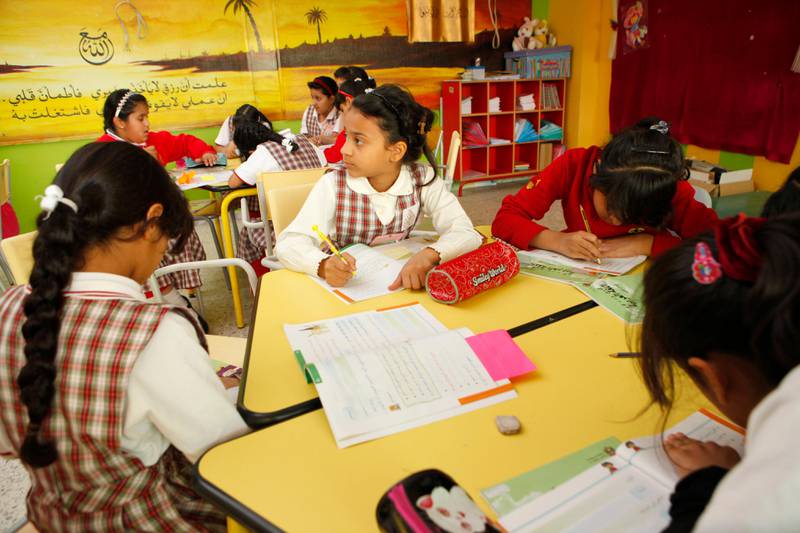The Knowledge and Human Development Authority has launched a new well-being strategy for Dubai private schools.
Education chiefs in Dubai have introduced an action plan to boost well-being among pupils and staff at the emirate’s private schools.
The Knowledge and Human Development Authority, Dubai’s private education regulator, on Wednesday launched a new framework to help schools sharpen their focus on the mental health of the school population.
Wellbeing Matters aims to build on the findings of the Dubai Student Wellbeing Census and help schools to put well-being and mental health initiatives in place.
There will be an emphasis on unique needs of pupils and their families and to help develop an inclusive learning culture.
The report found that teacher well-being, and that of other staff members must be a core focus for school leaders.
Building on the legacy and the data provided by the five-year Dubai Student Wellbeing Census, many schools have already incorporated the values of well-being into their culture and practices,” said Fatma Belrehif, chief executive of Dubai Schools Inspection Bureau.
“This framework represents the next stage of our well-being journey, enabling us to work more closely with schools, teachers and parents to ensure better learning outcomes and happier, healthier futures for our children.
“We appreciate the insights of all the school leaders who worked with us to develop the framework.”
The report recommends that schools should focus on a pupil’s strengths and work towards creating a diverse school community.
The guide includes specific areas in which schools will be evaluated, such as how well schools are leading a well-being culture; how well they are listening to the needs of their pupils and staff members; and how they are creating policies and processes to improve pupil well-being.
The results of each school’s well-being evaluation will be published with its inspection report and parent summary report, due to be released in 2023.
The Dubai Student Wellbeing Census, conducted annually for five years, involved more than 100,000 pupils each year.
Schools received customised data reports that helped them to put initiatives in place and improve pupils’ well-being over time.

